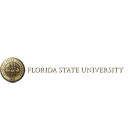- اخبار و مقالات
- Find usIDP AustraliaIDP BahrainIDP BangladeshIDP CambodiaIDP CanadaIDP ChinaIDP EgyptIDP GhanaIDP Hong KongIDP IndiaIDP IndonesiaIDP IranIDP JordanIDP KenyaIDP KoreaIDP KuwaitIDP LebanonIDP MalaysiaIDP MauritiusIDP Middle EastIDP NepalIDP New ZealandIDP NigeriaIDP OmanIDP PakistanIDP PhilippinesIDP Saudi ArabiaIDP SingaporeIDP Sri LankaIDP Taiwan, ChinaIDP ThailandIDP TurkeyIDP UAEIDP VietnamIDP Corporate
- Social
- فارسی
- Where we operate
- Courses
- Scholarships
- IELTS
- About IDP
- Student Essentials
- اخبار و مقالات
- Find us
- Find us
- Find nearest IDP offices
- IDP Australia
- IDP Bahrain
- IDP Bangladesh
- IDP Cambodia
- IDP Canada
- IDP China
- IDP Egypt
- IDP Ghana
- IDP Hong Kong
- IDP India
- IDP Indonesia
- IDP Iran
- IDP Jordan
- IDP Kenya
- IDP Korea
- IDP Kuwait
- IDP Lebanon
- IDP Malaysia
- IDP Mauritius
- IDP Middle East
- IDP Nepal
- IDP New Zealand
- IDP Nigeria
- IDP Oman
- IDP Pakistan
- IDP Philippines
- IDP Saudi Arabia
- IDP Singapore
- IDP Sri Lanka
- IDP Taiwan, China
- IDP Thailand
- IDP Turkey
- IDP UAE
- IDP Vietnam
- IDP Corporate
- Social
- LANGUAGE_SWITCHER
- آموزش IDP /
- کالج ها و دانشگاه ها /
- United States /
- Florida State University /
- Bachelor of Science in Chem...

Bachelor of Science in Chemical Engineering - Chemical Materials Engineering
At FLORIDA STATE UNIVERSITY

Location
United States
صلاحیت
Bachelor Degree
شهریه ها
USD18749
(2025)
مدت زمان
8 Semester(s)
پذیرش بعدی
12 May 2025
امتیاز ورود
6.5
آیلتسCOURSE_INFO
The vision of the Department of Chemical and Biomedical Engineering as an educational unit is to be recognized as a place of excellence in fundamental and applied chemical and biomedical engineering education and life-long learning, and to maintain a national research leadership in modern areas of engineering challenge. To attain this vision, the department realizes that it has to continually satisfy its major stakeholders: students, industrial employers, alumni, departmental faculty, the college, the universities, the community, the Accreditation Board for Engineering and Technology, Inc. (ABET), and other professional societies. Chemical engineering encompasses the development, application, and operation of processes in which chemical, biological, and/or physical changes of material are involved. The work of the chemical engineer is to analyze, develop, design, control, construct, and/or supervise chemical processes in research and development, pilot-scale operations, and industrial protection. Chemical engineers are employed in the manufacture of inorganic chemicals (e.g., acids, alkalis, pigments, fertilizers), organic chemicals (e.g., petrochemicals, polymers, fuels, propellants, pharmaceuticals, specialty chemicals), biological products (e.g., enzymes, vaccines, biochemicals, biofuels), and materials (e.g., ceramics, polymeric materials, paper, biomaterials). The graduate in chemical engineering is particularly versatile. Industrial work may involve production, operation, research, and development. Graduate education in medicine, dentistry, and law, as well as chemical engineering, biomedical engineering, and other engineering and scientific disciplines are viable alternatives for the more accomplished graduate.
Chemical-Materials Engineering. Chemical engineers have extensively developed and studied the molecular structures and dynamics of materialsincluding solids, liquids, and gasesin order to develop macroscopic descriptions of the behavior of such materials. In turn, these macroscopic descriptions have allowed the construction and analysis of unit processes that facilitate desired chemical and physical changes. This constant interplay between molecular scale understanding and macroscopic descriptions is unique and central to the field of chemical engineering.
- کمک هزینه تحصیلی
- دوره های کارآموزی
نیازمندی های ورود به Florida State University
Internet based TOEFL (IBTOEFL): 80
Paper based TOEFL (TOEFL): 550
International English Language Testing System (Academic IELTS): 6.5
ددلاین اپلیکیشن
تاریخ ددلاین مشخص نیست با یک مشاور IDP صحبت کنید برای اطلاعات بیشتر
Further information
If you aren't eligible for the above entry requirements, you might ant to explore pathway options at Florida State University. If you want to find out more, speak to our counsellors.
رتبه جهانی
301st / 1250
رتبه جهانیدانش اموزان ما چگونه فکر می کنند؟
هنوز نظری در مورد این موسسه دریافت نکرده ایم
Your action plan
گام 1
Shortlist your courses
Choose the best three courses you’re most likely to pursue.
گام 2
Check your eligibility
Get an instant in-principle offer for courses with the IDP FastLane tag.
گام 3
Apply through IDP Live
Fill out the form once and use it to apply to multiple courses.
اپلیکیشن فست لین IDP چگونه کار می کند؟
با "پذیرش مشروط" FastLane ظرف چند دقیقه می توانید در مورد پذیرفته شدن تان در دانشگاه با خبر شوید
یک موسسه یا دوره را انتخاب کنید
یک پروفایل آکادمیک ایجاد کنید
درخواست خود را برای "پیشنهاد مشروط" ارسال کنید
موسسه(ها) مورد نظر تان ظرف مدت چند دقیقه تصمیم خود را به شما اعلام خواهد کرد
برای درخواست پذیرش با کمک یک مشاور آماده شوید




